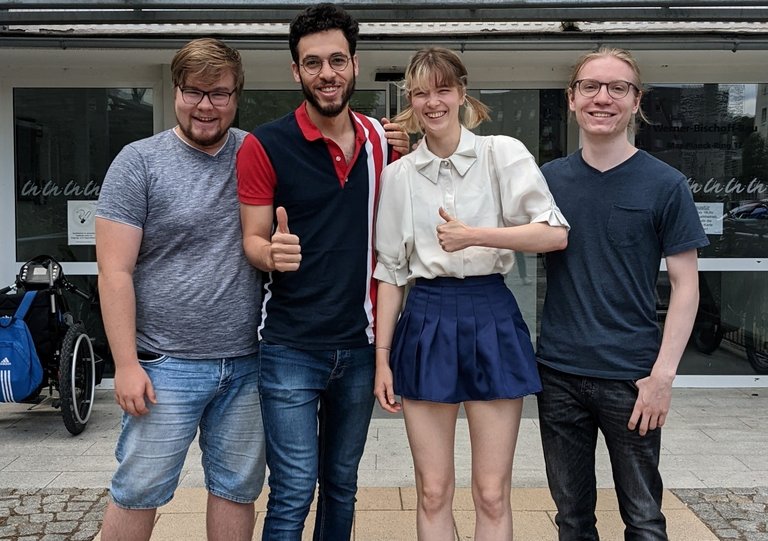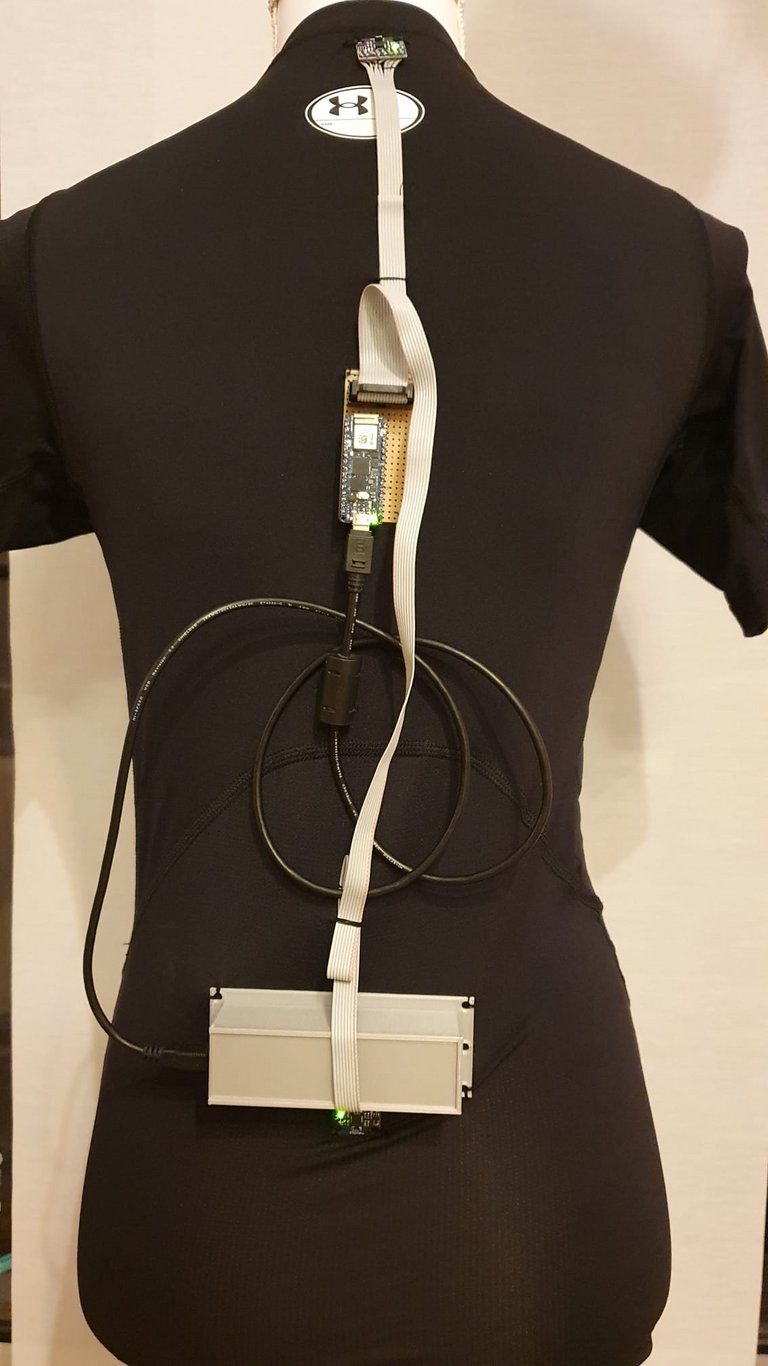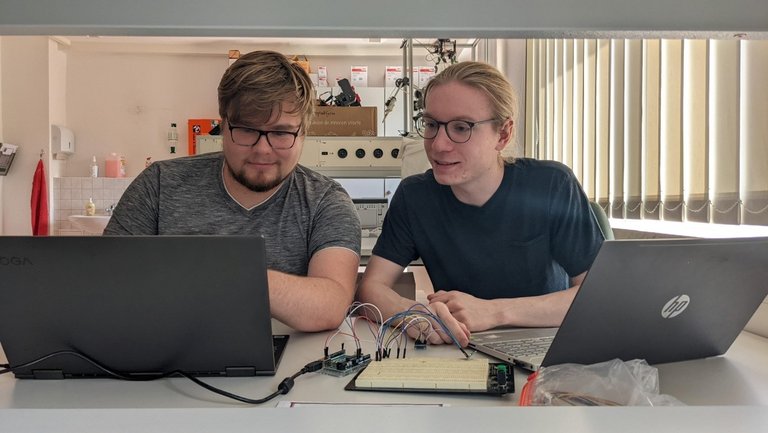Bachelor students of mechatronics develop a portable system for measuring spinal movement. With their research project S.H.I.R.T., they qualified as one of four teams nationwide for the COSIMA competition of the VDE. They will present their intelligent T-shirt at electronica, the world's leading electronics trade fair and conference.

"Whether standing, walking or sitting - in everyday life we tend to make the wrong movements," says Michael Jung. In order to quickly detect incorrect postures, movements or simply too little movement, the mechatronics student has joined forces with a fellow student and two fellow students to form a team. Together, they are developing a system to monitor the movement of the spine - specifically its tilt and rotation when walking. The core of the students' measurement system consists of just two inertial measurement units (IMU) - small, lightweight and inexpensive sensors for measuring angular velocity and linear acceleration. Hidden in fabric bags, they are attached between the shoulder blades and above the coccyx and accompany the wearer in everyday life. An Arduino microcontroller collects the data, which can then be transmitted wirelessly to a PC or smartphone and analyzed.

The research project S.H.I.R.T. was developed as part of the lecture "Fundamentals of Biomechatronics" and was supervised by Prof. Hartmut Witte, Head of the Biomechatronics Group, and Dipl.-Ing. Thomas Helbig, research assistant at the same department. Since the beginning of the summer semester 2022, Michael Jung, Emma Stolpe, Mohamed Elsayed and Simon Leiniger have been working on the development of their system.
Currently, the team of students is working on verifying the collected data and preparing it in a user-friendly way. For example, the wearers of the T-shirt could be able to graphically track their spinal movements via an app, according to one of the students' ideas. In the event of frequent incorrect movements, the app could display a warning message to prevent possible damage, says Michael Jung, explaining the possibilities of data evaluation.
If the system is developed further, it could be used in sports or medical analysis of movements and the diagnosis of back problems by doctors or in physiotherapy. Movement analysis at the workplace, for example in physically demanding work, would then also be possible.
As one of four teams across Germany that qualified for the VDE's COSIMA competition, the Ilmenau students will present their project at electronica, the world's leading electronics trade fair and conference, on November 17 and 18. Michael Jung is eager to hear the feedback from the jury, including jurors from industry:
With its intersection of mechatronics, electronics, computer science and biology, our research project reflects the exciting diversity of the field of biomechatronics. We are therefore very pleased that our team has been selected for the competition. If we receive positive feedback from the expert judges at electronica and there is interest from industry, we can well imagine developing our measurement system further.

COSIMA, the Competition of Students in Microsystems Applications, is organized by the German Association for Electrical, Electronic & Information Technologies (VDE) and funded by the German Federal Ministry of Education and Research (BMBF). Each year, the competition pits teams against each other who have developed new applications for sensors and microsystems in everyday life. This year's competitors come from Hamburg, Karlsruhe and Munich. The finals will be held from November 15 to 18 at electronica in Munich.
Contact
Prof. Hartmut Witte
Head of Biomechatronics Group

